Are you currently in crisis?
If you feel like you may attempt suicide, or have seriously hurt yourself, this is an emergency requiring immediate support. Call 999 now and ask for an ambulance. Tell an adult you trust who can offer additional help.
Browse some of our current resources below.
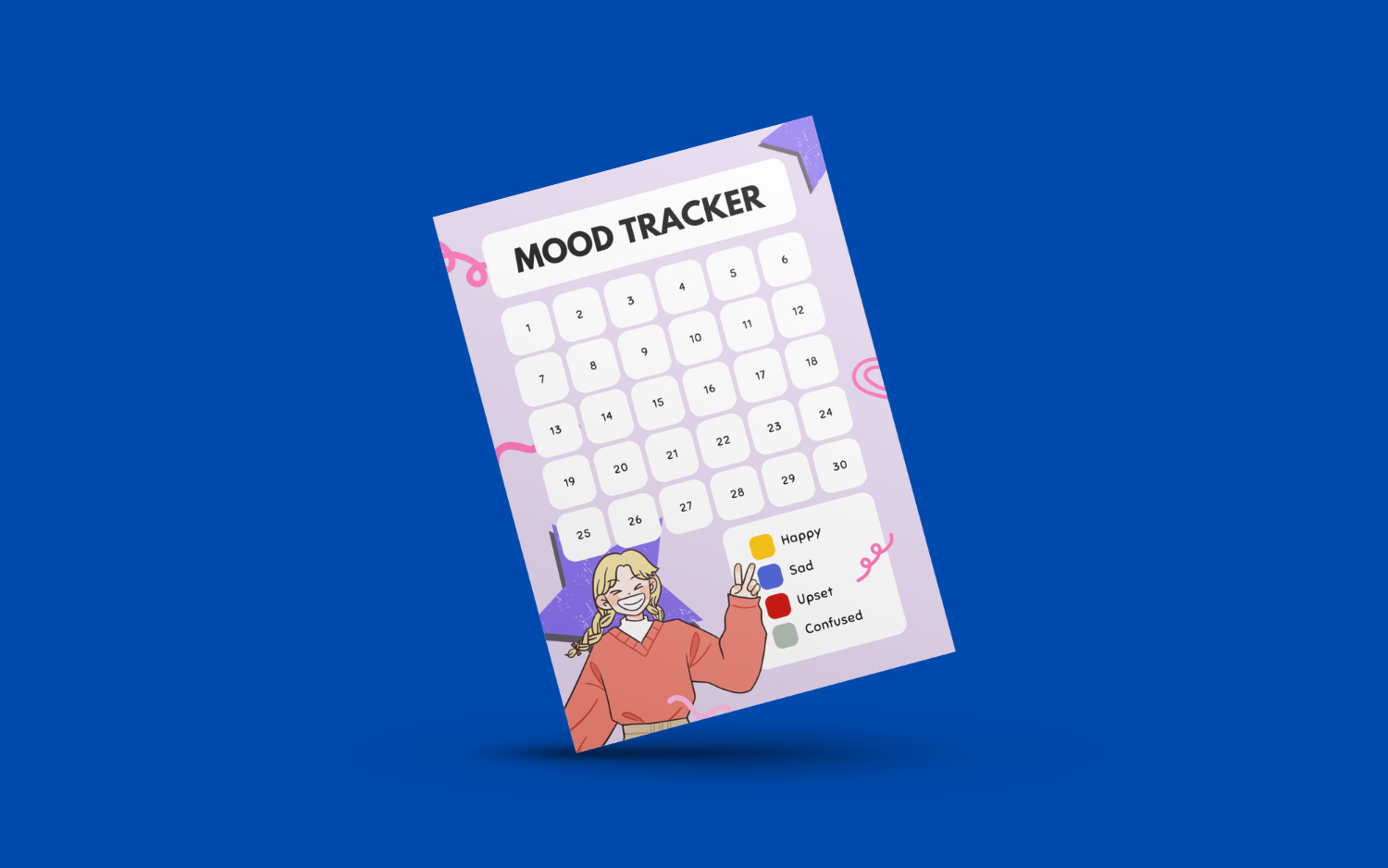
Monthly Mood Tracker
Keep on top of your feelings. Record when you are feeling happy, sad, upset or confused. In addition, you could journal your feelings, which include possible triggers to these emotions.

My Anxiety Attack Plan
Knowing what triggers an anxiety attack and identifying coping strategies is key in reducing the length and severity of a panic attack. Use this worksheet to help.

MOTS Change Makers
Want to further your skills and understanding on mental health, support friends and challenge stigma – become a Change Maker today, to continue the MOTS mission.

Coping with Grief
Loosing someone close to you can be extremely upsetting. Grief involves coping with loss. It can be an overwhelming emotion. Support is available. Read through our mini guide for advice.
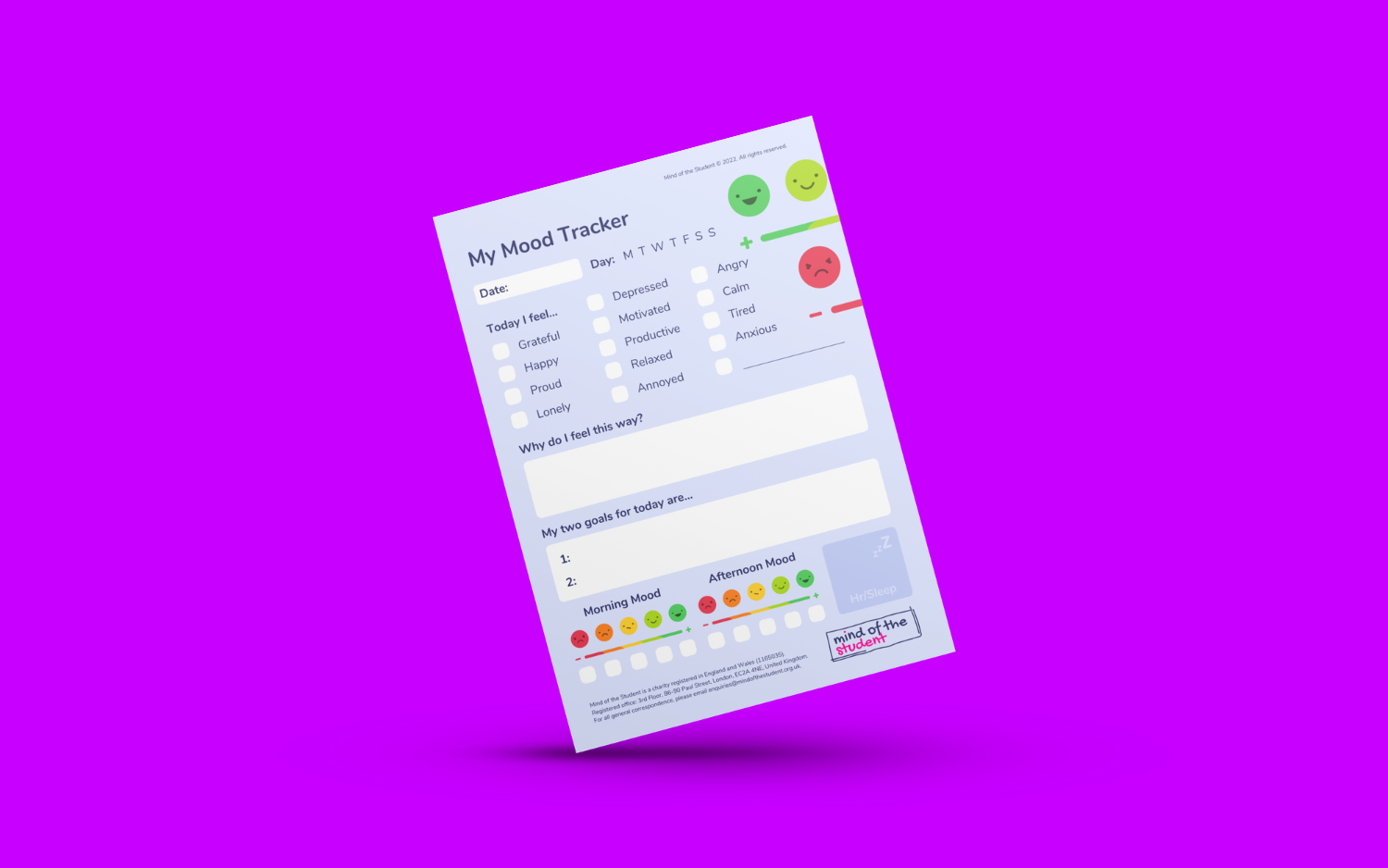
Daily Mood Tracker
Write down what activities make you sad, board, normal, happy or cheerful. Find ways to make those activities more fun… and what activities trigger your emotions negatively.

Urgent Mental Health Services
Are you looking for a mental health service? Click the below link, which will direct you to the nearest service to support you and your mental health.

Self-Help Techniques
Box breathing, also known as square breathing, is a simple and effective relaxation technique that involves a specific pattern of breath control. It is often used to manage stress.
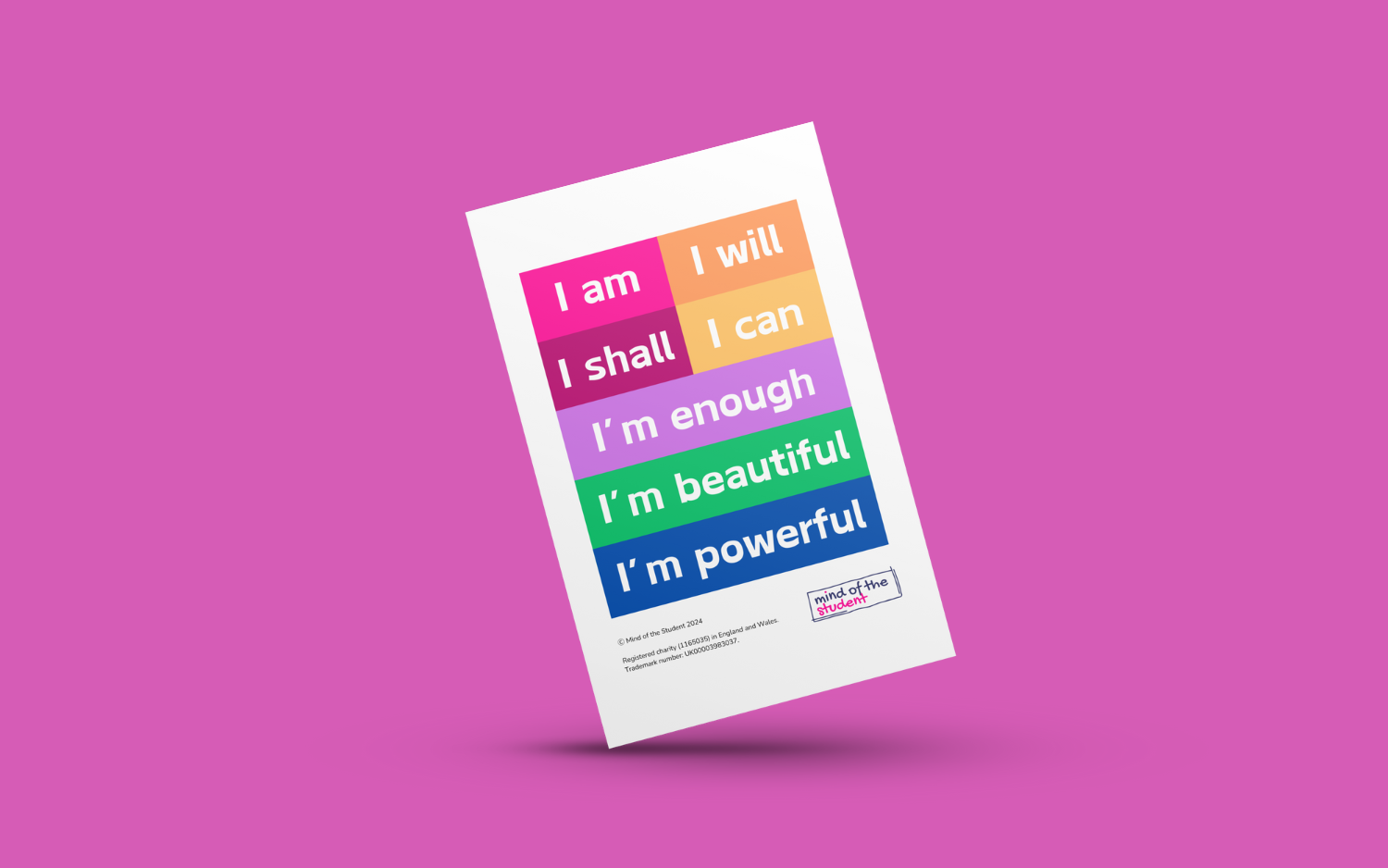
Positive Affirmations Poster
Positive affirmations are positive phrases or statements that are used to challenge unhelpful or negative thoughts. Print our free poster, to stick on your bedroom door, in the school corridor or locker.
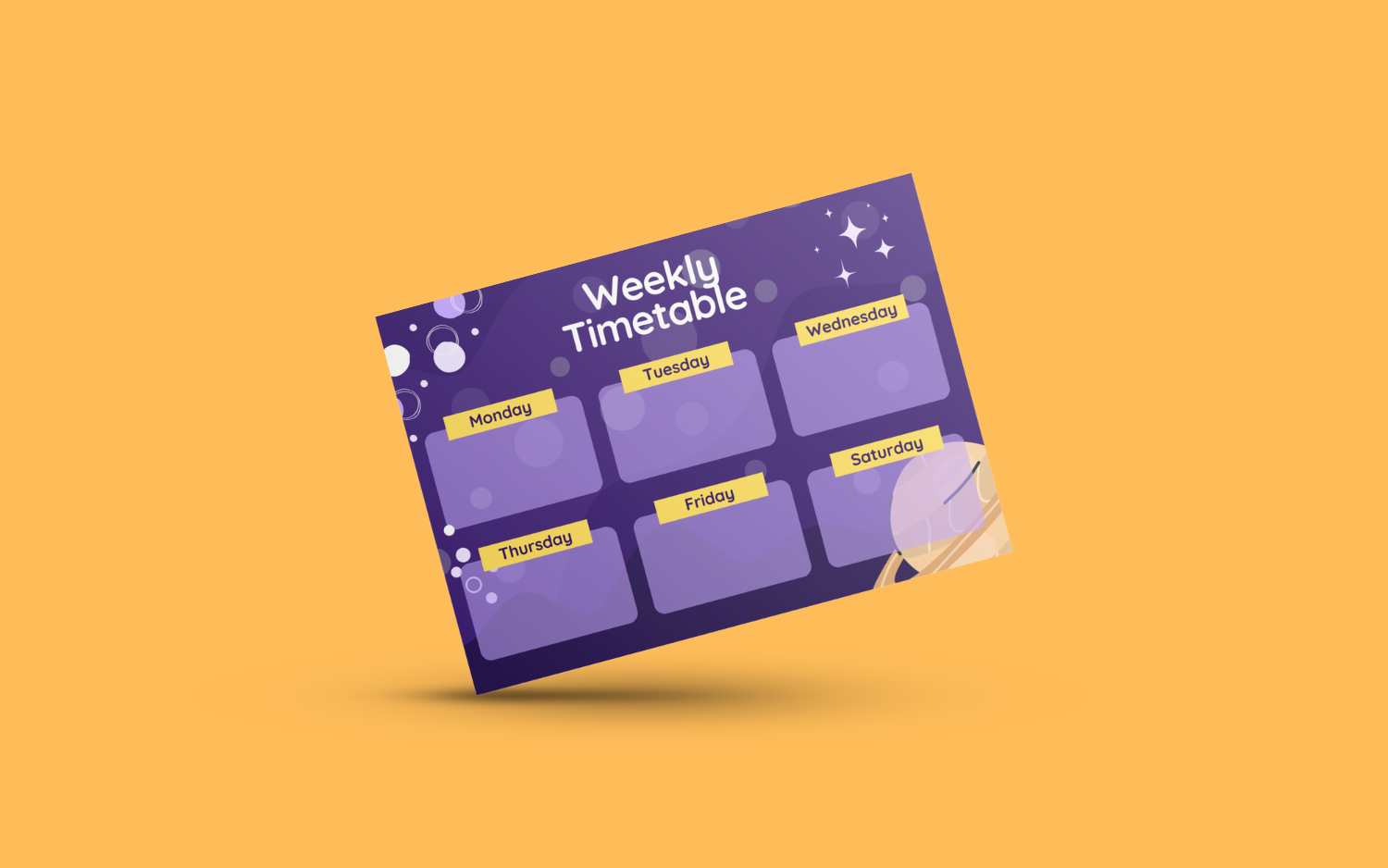
Weekly Timetable
Sticking to a timetable can help keep you focused, add rewards to your busy school timetable. Remember to block out time for just you, in your weekly timetable. Download and print out.
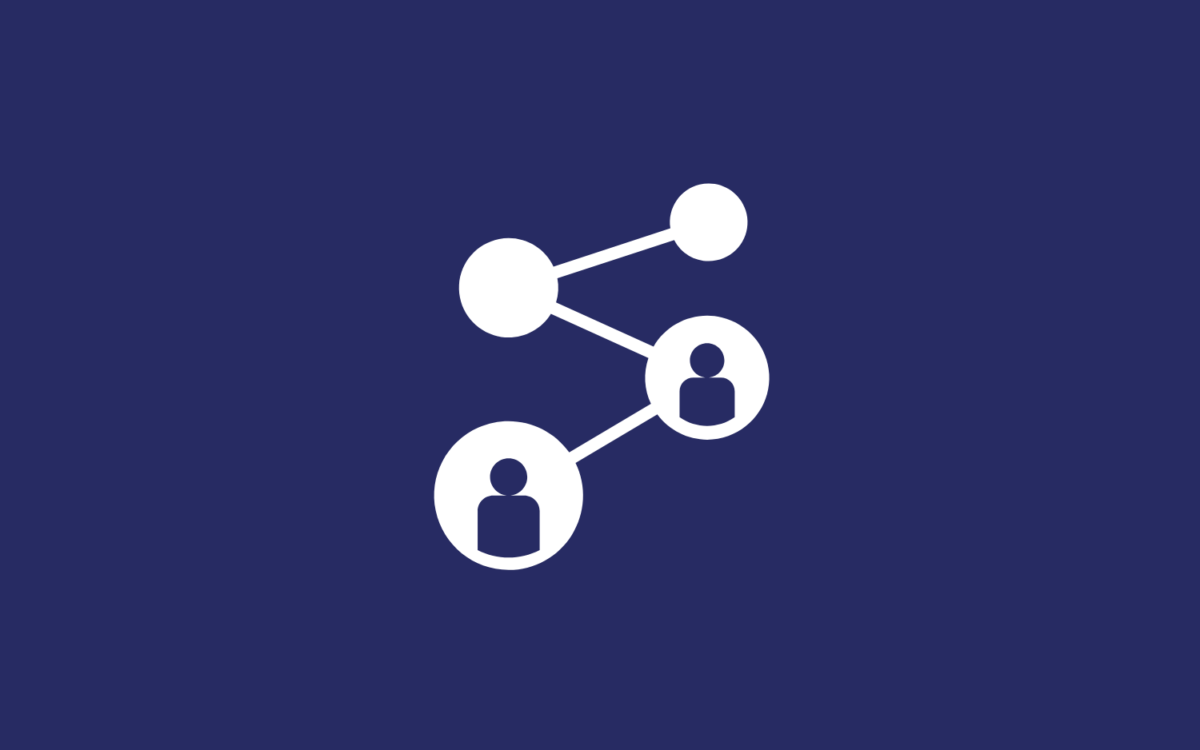
CAMHS Referrals
Child and Adolescent Mental Health Services is a NHS service that assess and treat young people with their mental health. A GP, teacher, parent/guardian.
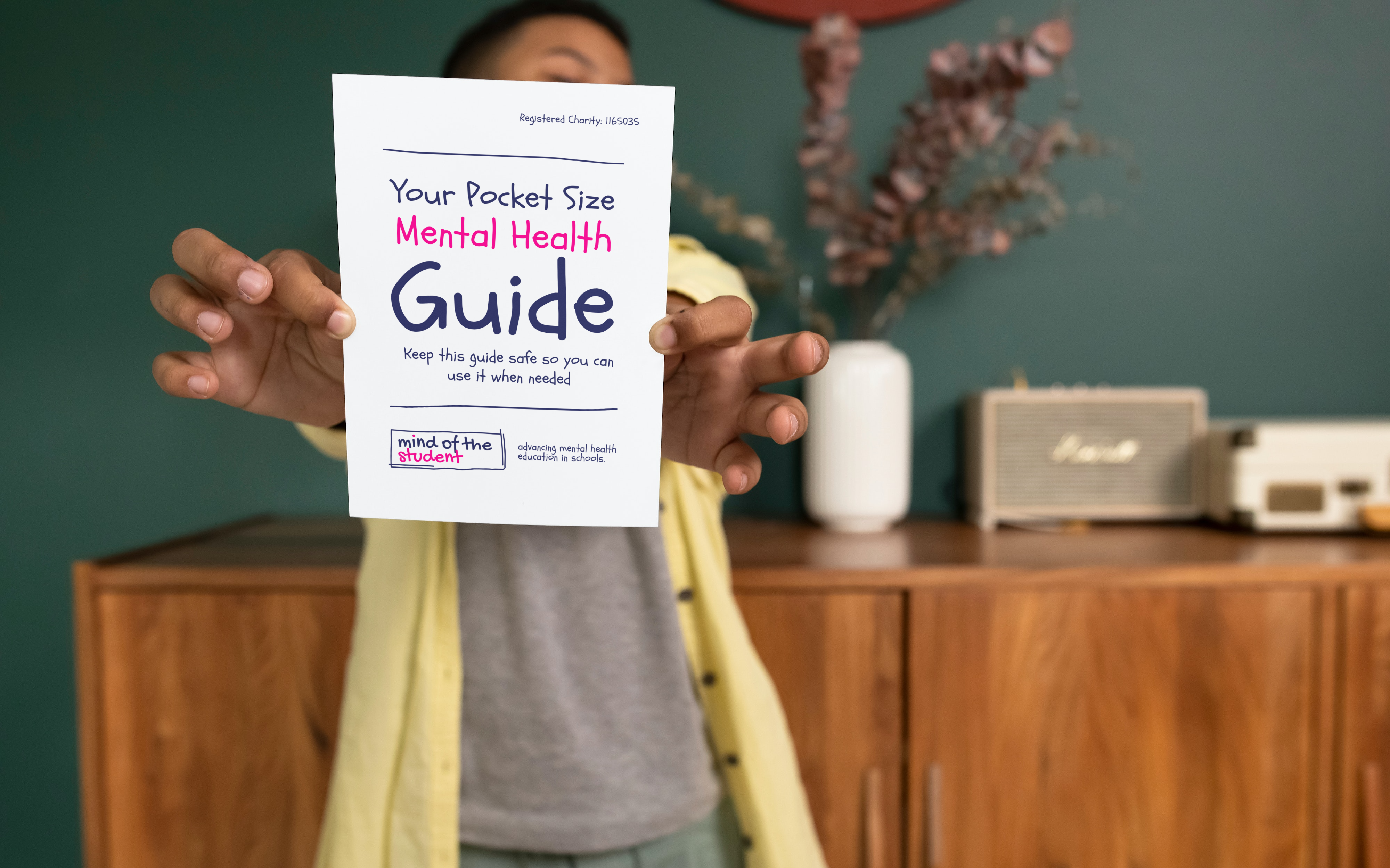
Training Day Pocket Guide
Our pocket size mental health guide includes useful self-help tips, signposting and information on depression, anxiety, social media and exam stress. We provide this to all schools, MOTS visit.

Exam Results Support
Receiving your exam results can be a stressful and anxious experience. Remember, your grades don’t define who you are or limit what you can achieve in life. Explore our advice page below.
Helplines and Additional Support
ChildLine
Get help and advice about a wide range of issues, call them, talk to a counsellor online, send Childline an email or post on the message boards.
Helpline: 0800 1111 (Open always)
Samaritans
Call Samaritans any time, day or night. Whatever you’re going through, you can them at any time, from any phone for FREE.
Helpline: 116 123 (Open always)
Email: [email protected] (Response time: It may take several days to get a response by email)
Anxiety UK
- Helpline: 03444 775 774 (Open Mon – Fri 09:30-17:30)
- Text support service: 07537 416905
LGBT+ Support
Switchboard LGBT+ Helpline
A safe helpline for anyone to discuss anything, including sexuality, gender identity, sexual health and emotional well-being.
- Helpline: 0800 0119 100 (Open 10:00-22:00 every day)
The Proud Trust
The Proud Trust is a charity providing education, support and advocacy for LGBT+ young people and their communities.
BBC Bitesize
Use BBC Bitesize to help with your homework, revision, learning and coping with exam stress.
Be Body Positive
Be Body Positive offers psychoeducational and self-guided resources on normal eating, body image and disordered eating vs eating disorders to young people, parents, carers and health professionals.
Share your story
If you have recently experienced mental ill-health, or have an existing diagnosis of mental illness we are keen to hear from you.
Your story may include how you first got help, who supports you, how you support yourself, your experience in school and how you are now, compared to when you first started experiencing mental ill-health.
